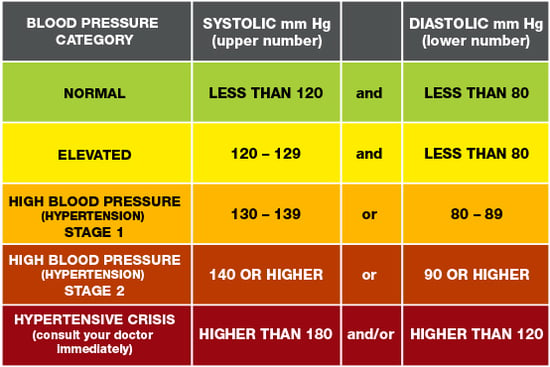Strive for a Healthy Heart
.png?width=372&height=250&name=Untitled%20(300%20%C3%97%20175%20px).png)
Last month, my spouse expressed to me how uncomfortable he had been for the past couple of hours. He told me that he had a severe headache and felt discomfort in his chest. In that moment, I saw him grab his chest and rub it aggressively. I immediately took his blood pressure. The machine read 163/114. We rushed to his doctor’s office, and she was very happy that we came. The doctor explained that my spouse has hypertension. If went untreated, he could have eventually had a stroke.
Within the African American community, hypertension is a very common diagnosis. In fact, African Americans have disproportionally high rates, being the highest in the world (American Heart Association). African Americans are thirty percent more likely to have high blood pressure and are less likely than non-Hispanic whites to have their blood pressure under control (The Office of Minority Health). The main cause is societal factors. Accessibility to healthy food and living in non-walkable, unsafe neighborhoods can have a negative effect on a person’s lifestyle. These societal factors can lead to being overweight/obese, intaking a high amount of salt, high cholesterol, and diabetes (Know Your Risk Factors for High Blood Pressure | AHA).
Hypertension is a condition in which blood is forcefully pushing against the blood vessel walls in the heart. The systolic reading (the top number of blood pressure) is the pressure of the blood that is being pumped throughout the body. The diastolic pressure (the bottom number of blood pressure) is the pressure of the heart when it is at a relaxed state. When someone has hypertension, the heart pumps harder and the arteries in your heart are constricted. The average blood pressure is 120/80 in adults. Signs and symptoms can include headache, chest pain, dizziness, blurred vision, abnormal heart rate, confusion, and difficulty breathing. Complications of hypertension include stroke, heart attack, kidney damage, memory loss, fluid in the lungs, and heart failure.
The systolic reading (the top number of blood pressure) is the pressure of the blood that is being pumped throughout the body. The diastolic pressure (the bottom number of blood pressure) is the pressure of the heart when it is at a relaxed state. When someone has hypertension, the heart pumps harder and the arteries in your heart are constricted. The average blood pressure is 120/80 in adults. Signs and symptoms can include headache, chest pain, dizziness, blurred vision, abnormal heart rate, confusion, and difficulty breathing. Complications of hypertension include stroke, heart attack, kidney damage, memory loss, fluid in the lungs, and heart failure.
Behavioral health services are a necessity for individuals and populations who have hypertension. Mental health disorders can arise, such as chronic stress, major depression, and generalized anxiety (Heart Disease and Mental Health Disorders | cdc.gov). These mental health disorders can lead to an unhealthy lifestyle (being less active, excessive drinking, etc.). Mental health disorders, sadly, are still surrounded by stigmas and judgment today. In fact, African Americans are less likely to seek treatment due to being labeled “crazy” (Boston University). Other disparities, including access to care, cultural competence, and support from family, are also present.
Seeking behavioral health services can help address the well-being of individuals and communities emotionally and mentally. Professionals can collaborate with individuals and communities with lifestyle modifications. Losing weight, increasing physical activity, and monitoring salt intake are the three main recommendations to address hypertension. Stress management and mindfulness techniques can also be an option. Behavioral health services have expanded throughout the last decade and are available for everyone to utilize.
Hypertension is widely known as the silent killer. Recognize symptoms, educate yourself about blood pressure, and strive for a healthy heart.
Subscribe for updates
_.webp)



